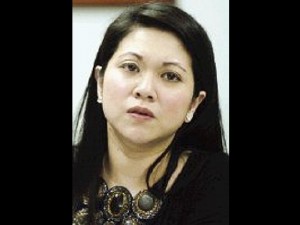Palace ready to take up with Senate issue of foreign access to PH bases
MANILA, Philippines—Malacañang said Saturday it was willing to discuss with senators a proposal to give the United States and other allies access to Philippine military bases after some of the lawmakers raised concerns about the constitutionality of the plan.
One of President Aquino’s spkespersons, Abigail Valte, said that while the Department of National Defense continues to look into the various modes of temporary access to local military bases, the final plan will be in accordance with the Constitution and existing laws.
“The defense department is studying different modalities how to operationalize the increased rotational presence of our allies, the United States,” Valte said in an interview on the state-run radio dzRB. “Secondly, whatever comes out of the study of the modalities, it will all be consistent with the Constitution and in accordance with the Visiting Forces Agreement.”
Valte’s remarks came after Senator Juan Ponce Enrile questioned the constitutionality of the planned temporary access to Philippine bases for US forces as well as other allies like Japan.
Senator Loren Legarda, chair of the Senate committee on foreign relations, said any foreign access to local military facilities should comply with the provisions of existing visiting forces agreements with the country’s allies.
Several other senators also expressed reservations about the plan, hatched in the middle of a dispute with China over territories in the West Philippine Sea, and indicated the need for the Senate to be consulted. It is the Senate that is empowered by the Constitution to ratify foreign treaties.
“Of course, we are open to their concerns. We also understand their concerns and which is why we are open to having these discussions,” Valte replied when asked if Malacañang was willing to take the matter up with the lawmakers.
Enrile, the former Senate president who is expected to be minority leader in the incoming Senate, said the Philippine-US Visiting Forces Agreement provides only for temporary presence of US soldiers.
“They cannot establish any military base in the Philippines,” Enrile told reporters on Friday when he was asked for his thoughts on the government’s plan to allow the US and other allies to have access to military bases in the country.
“Temporary or whatever term they use, no military bases if it assumes a certain degree of permanence or stability. It’s no longer visiting forces,” he added.
Enrile said that when the Senate ratified the the VFA, “what we agreed upon is a rule in which American soldiers come to the Philippines only temporarily.”
“That will be an issue before the Supreme Court,” Enrile added.
Legarda said strict adherence to terms of the VFA would ensure that US military presence remains within the bounds of the Constitution, which prohibits permanent foreign military presence in the country.
“The same is true with Australia (with whom) we have an existing Status of Visiting Forces Agreement, which has already been ratified by the Senate,” Legarda said. “As it is, there are joint exercises and initiatives and to a certain degree access to our facilities allowed but according to well-defined terms. Under this scenario, there is no need for Senate approval.”
Sen. Antonio Trillanes IV, a former Navy junior officer, said the Senate will have to wait for the final copy of the accord that will allow foreign access to Philippine bases.
“If it would be a separate agreement similar to the VFA, it would need Senate approval. But if it would only be an implementing guideline of prior agreements, it won’t need one,” Trillanes said.
Asked if it was in the interest of the country to allow foreigners into its bases, Trillanes said, “The strengthening of alliances through joint exercises and visits of forces should help improve our national security situation in general.”
Outgoing Sen. Panfilo Lacson, a former PNP director-general and chair of the Senate committee on national defense, said the issue was a “wide gray area.”
“The DND should exercise prudence by at least consulting the senators on the matter,” Lacson said. “After all, the Senate is mandated by the Constitution to ratify bilatal agreements between our country and another, and using temporary access as a technicality to go around that constitutional provision does not speak well of the defense department.”
Sen. Gregorio Honasan, an ally of Enrile’s, said the Senate should take a look at the planned access agreements but given the number of administration senators in the next Congress, they are expected to get the chamber’s approval.
“I think because of our weaknesses (militarily), we have limited options,” Honasan said, adding that if the matter were to be formally taken up by the Senate, “it will just be a numbers game.”
Senator Francis Escudero, chair of the Senate committee on justice, said there was no need for Senate approval.
“Only treaties need to be ratified by the Senate. Foreign policy and relations are still primarily within the domain of the executive branch,” Escudero said.
Asked if the senators need to be consulted on the matter, he said, “It’s always better to get the consensus or at least the opinion not only of the Senate but key stakeholders in order for things to flow more smoothly.
For comprehensive coverage, in-depth analysis, visit our special page for West Philippine Sea updates. Stay informed with articles, videos, and expert opinions.
